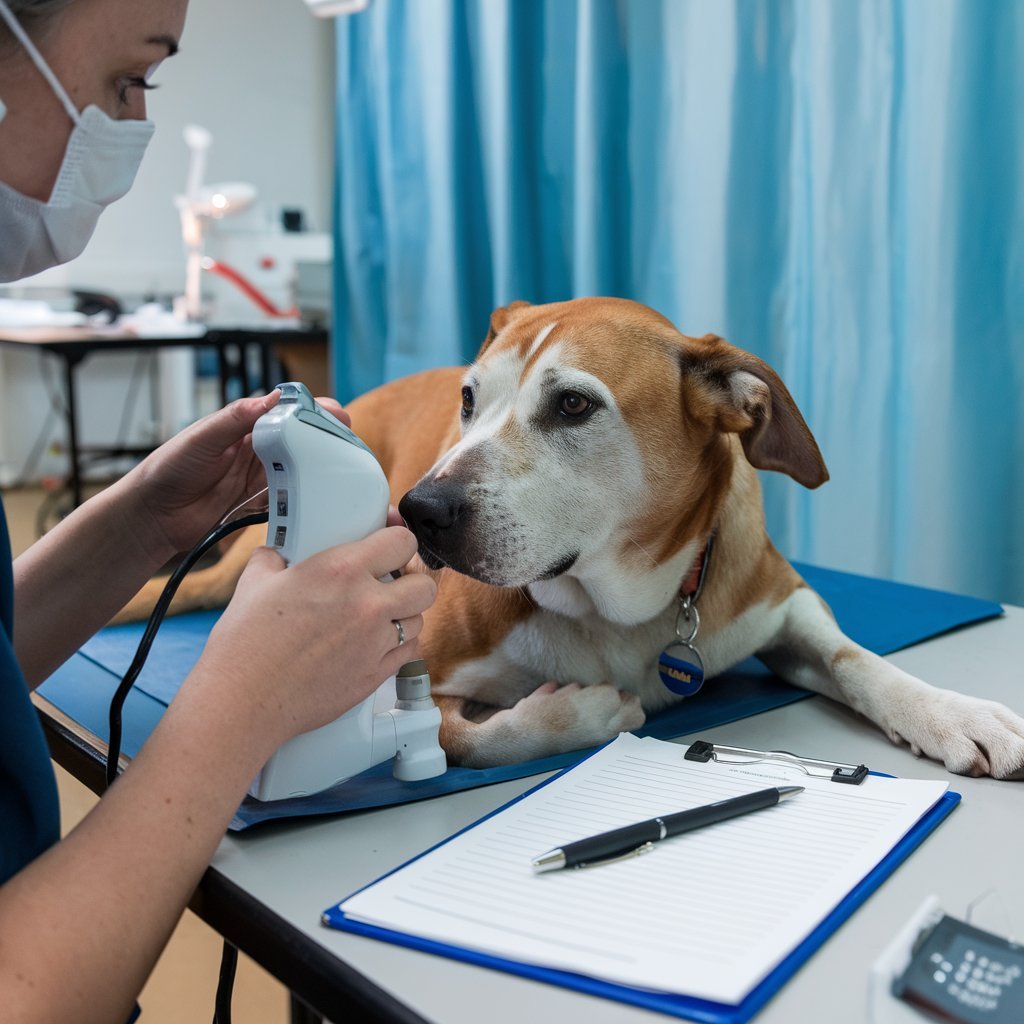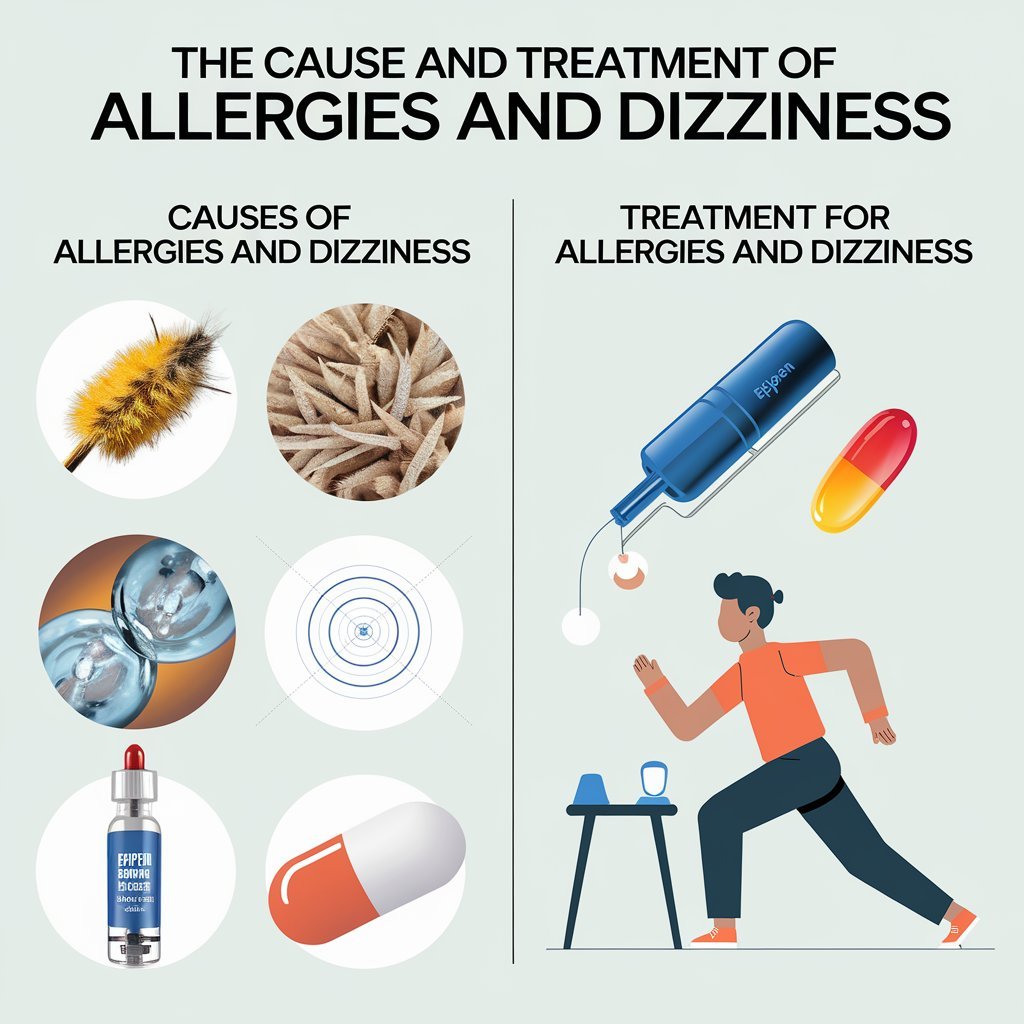Allergies are everywhere and, no doubt, you, or someone close to you may have had serious reactions. So, you must think that your fever is one more awful symptom of your seasonal or year-round allergies. Cheer up, as you do not have to worry about a fever when your allergies act up. Allergies do not cause a fever. However, a fever accompanied by symptoms of allergies can mean that there is something wrong with you.
Allergies are a common condition that occurs when your body has an overactive immune response to an otherwise unharmful substance, such as pollen, animal dander, or dust. While there are a wide variety of allergies you can experience, they generally cause many of the same symptoms. If you have a fever, it is very likely not due to allergies. However, having a fever while also experiencing allergy symptoms may indicate another health issue.

Allergic rhinitis is also called “hay fever,” and it presents with an inflammatory response within the inner nose. The term “fever” is somewhat of a misnomer, since fever actually comes from your body fighting off an infection, not from allergies themselves. A fever is your body’s natural reaction to try and kill off an infection that is attempting to harm you.
How Allergy Symptoms Affect Different People
Allergies do not look the same for everyone. However, you cannot get a fever from allergies. About 56% of adults in the United States have environmental allergies, such as pollen, though those are not the only types of allergens out there. However, you may also have food allergies or even be allergic to certain materials or metals. Just like there are several different types of allergies, there are different ways people respond to those allergies.
- Itchy or watery eyes
- Sneezing
- Runny nose or congestion
- Coughing
- Hives and other skin rashes
- Headache
- Nausea
- Fatigue
You can discover what you are allergic to if you don’t quite know, through an allergy test. Allergy testing will enable you to introduce measures to protect you from allergens in the future. The prick test is the most popular type of allergy test. In this type of test, the allergen is applied on the skin, and the patient sits for around 20 minutes to see if a reaction has occurred. There are other types of allergy tests, such as the patch test, which do not use needles.
You may find that your allergy symptoms are not as severe as someone else’s in some situations. Or if you have environmental allergies, you may find that they only flare up on certain days. Certain types of pollen could be more prevalent in the air than others, leading to a surge in symptoms that can hit you much more forcefully on certain days. But can seasonal allergies cause fever? They can’t—and a fever might be an indicator of something larger.
What Does a Fever Mean?
A fever could mean many things with your body, but on a basic level, it means your immune system is fighting something. Fever does not usually accompany allergies, so when you believe you have allergies and fever, the fever is most likely caused by something else.

Fevers are natural defense mechanisms for your body. They exist to create an environment where the bacteria or viruses that exist in your system cannot thrive. Your temperature is usually highest in the evening, so you should check it regularly throughout the day if you’re worried about your fever.
While your temperature may be alarming, you don’t usually have to be concerned about having a higher body temperature than you are accustomed to. You should see a healthcare provider if your symptoms last longer than 10 days or if medications are not helping to bring them down.4 Other than that, just keep an eye on it and try to relieve it with rest and over-the-counter (OTC) treatments.
Potential causes of fever with allergy-like symptoms include:
Many illnesses mimic what you might feel when you have allergies. As such, it might be difficult for you to know at first whether your allergies are acting upor your body is fighting off an infection. There are a few common reasons you might have acquired a fever at the same time as your allergy symptoms, but sinus allergies cannot cause fever by themselves.
Sinusitis
Sinusitis is the condition of inflammation within the lining of the sinuses. It could be caused by a virus, fungus, allergies, or even bacteria. Since this condition brings inflammation to your face, specifically within the area where your sinuses are, you can easily recognize that it’s a sinusitis condition. For one, a person with an allergy will have swelling within his or her face because it is actually his or her body rejecting the allergen.
Sinusitis is more of an infection due to allergies or a cold that can make your mucus thick and cause you to swell in pain. You can also experience a cough or sore throat. Your healthcare provider can look at you and help you know which one it is.
Common Cold
You’re most likely to have no fever or a low fever with a common cold. A fever usually appears early in a cold, and the cold itself might last up to a week. A cold characteristically causes symptoms like a sore throat and cough. You may note that your cough lasts much longer than any of your other symptoms.
COVID-19
One of the most well-known symptoms of COVID-19 is a fever along with other common cold-like symptoms, such as chills and muscle aches. If you think you have COVID, you should get tested right away. If your test comes back positive, you should self-isolate and stay home for about 5 days, when you are most contagious, say the Centers for Disease Control and Prevention.
How to Diagnose an Illness vs. Allergies
Having a fever is one of the main signs that you have more than just allergies since seasonal allergies can’t cause a fever. Sinus allergies can’t cause fever,but they might lead to sinusitis, which could come with a light fever depending on your symptoms.

Your doctor will analyze all of your symptoms in order to provide a proper diagnosis. Allergies can be handled pretty well at home, so if you’re not able to get your symptoms to go away it may be an illness. Breathlessness and vomiting are not allergy symptoms, so if you have those it’s most likely due to an illness or other cause.
How to Relieve Your Allergy Symptoms
Allergies can be managed by aiding the immune system to work more efficiently, or using supplemental medicines to make it do its job better. The next time you fall sick because of allergens and you have to deal with fever simultaneously, try to alleviate allergy symptoms so that your body can aid you in getting well from whatever else is going on.
Rest Enough
When you are ill, whether you have allergy symptoms or an illness, you need more rest than you normally have. On average, adults require seven or more hours of sleep to function well the next day, and you should ensure that sleep has minimal disruptions. A person needs more rest when they are ill. Consistent getting enough rest helps keep you from getting sick as often.
Take Over-the-Counter Medication
Allergies can be so strong sometimes that you may need certain medication to be okay. There are medicines that target more topical symptoms such as hives, while others will alleviate your runny or congested nose. Thankfully, there are drugs available without prescription because they can be bought over the counter.
- Allegra (fexofenadine)
- Claritin (loratadine)
- Flonase (fluticasone)
- Xyzal (levocetirizine)
- Zyrtec (cetirizine)
In case you have a fever—especially a fever above 102 degrees—you may also need to use some fever and pain-reducing medications. You can get them at any drugstore. Just be sure to check them against any other medication you are taking so that you don’t have a negative reaction. Some of the most common OTC painkillers for fevers include Advil (ibuprofen) or Tylenol (acetaminophen).
Drink Fluids
Drinking fluids is a good way to flush allergies out of your system while also working to ease your fever. Middle-aged people who are not adequately hydrated risk developing chronic illnesses and shortening their life spans, and your average daily water intake depends on factors like your weight and age.
You should try to drink the best amount of water for you. Preventing dehydration can help you battle both allergy symptoms and fevers. It can especially help with seasonal allergies.
Consider Allergy Mitigation
You can mitigate your allergy symptoms through measures of avoiding some things or through seeking other treatments. For instance, if you have seasonal or environmental allergies, you can avoid walking outside when such allergens are in the air by wearing a mask or sunglasses that will keep them from reaching your face. You may also opt to stay indoors when pollen counts are higher.
Another good solution is taking allergy shots or sublingual tablets, which are also referred to as immunotherapy. The treatment helps your body get used to the allergen to the point that you no longer have an overactive immune response when exposed to it. Another option would be to clean consistently to ensure fewer allergens find a home within your house.
Managing Fever on Your Own
Sometimes you may want to treat your sickness at home because it is not quite bad. Don’t worry there are simple measures you can observe to take good care of your body and even help it cure naturally.
- Take medication of OTC Pain relievers including Tylenol (acetaminophen), Advil(ibuprofen),
- Maintain fluid intake for your body while getting enough rest.
- Wear light clothing since you will be helpful in cooling of your body.
Of course, if your fever persists too long or is too high, you must go see your healthcare provider to be properly diagnosed and find out ways to treat it. Your provider will know what to do to bring down your fever and make your pain and other symptoms more tolerable.
When to Call a Healthcare Provider
You should always see a doctor if your symptoms worsen or feel unusual. See a doctor if your child has fever and is:
- Under 3 months of age and has a temperature of 100.4 degrees or higher
- Between 3 and 12 months of age and has a temperature of 102.2 degrees or higher
- 2 years or younger and has had a fever for more than 24-48 hours
- You or your child have had a fever for more than 48-72 hours
- Your or your child has a fever of 105 degrees or more
Getting treated may soothe symptoms or possibly even spare your life, since allergic reaction may lead to very deadly cases of poisoning. A persistent fever must be brought out and diagnosed before any appropriate course of action for it.
This condition should break a fever in some days as the body heals it. However, you should report to your doctor if your fever seems high enough for you to get worried, more so if with symptoms such as confusion or dyspnea. You should find medical care immediately if you sense any unusual aching with fever.




